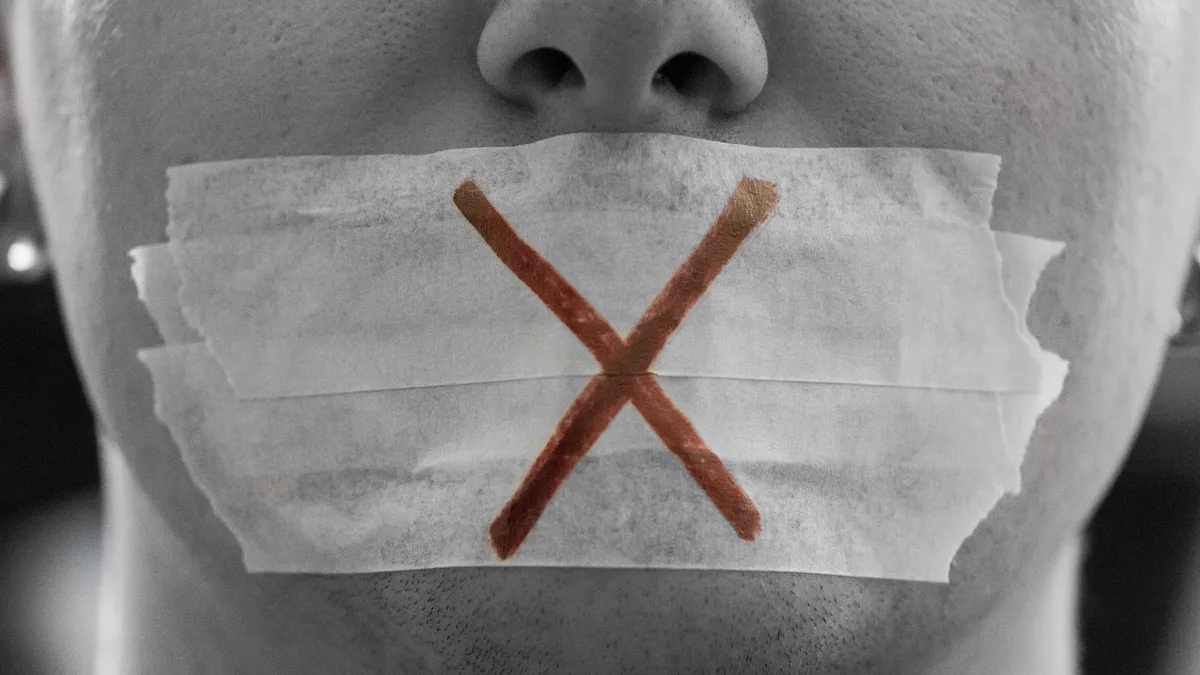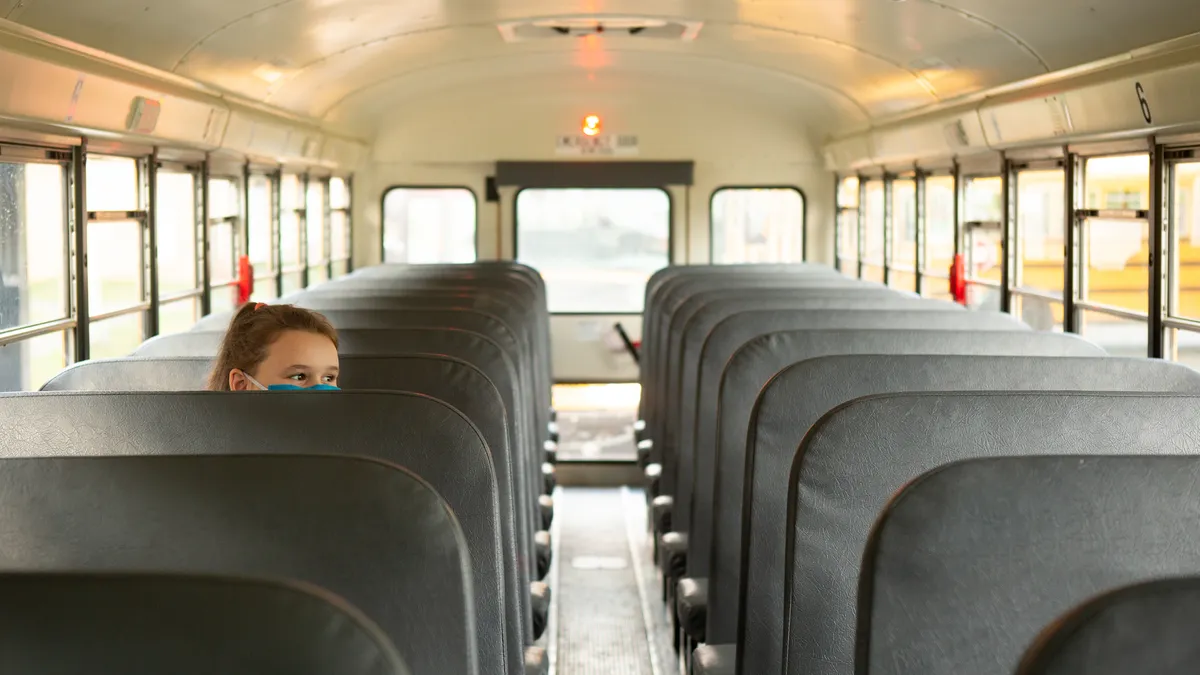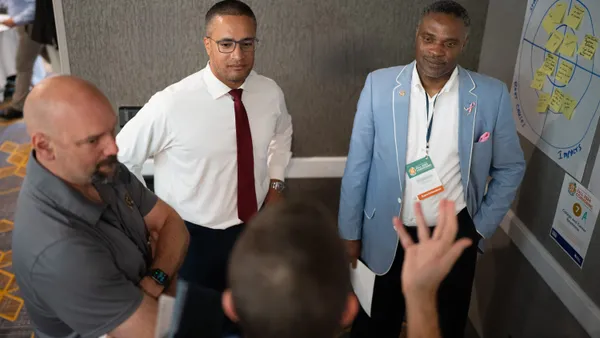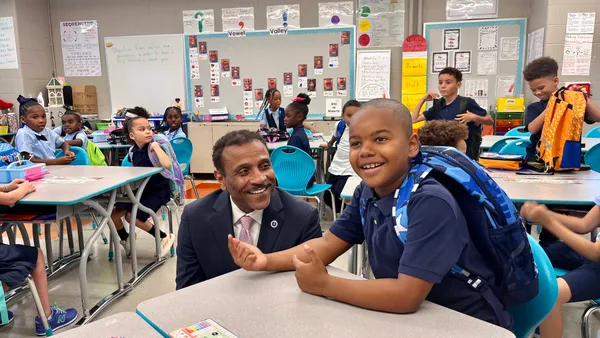Dive Brief:
- Bills designed to prohibit classroom discussion of certain topics like race and LGBTQ culture often target K-12 schools and may dissuade prospective teachers from joining the profession, according to a new report.
- The research, from the American Association of Colleges for Teacher Education, outlines patterns in these bills, including how teachers can be subject to fines or other penalties for violations.
- The association recommends educators support and talk with each other amid the politically charged environment. It also urges parents to speak out against these bills and for school administrators to regularly update instructors on legislative changes and help them make curricula choices.
Dive Insight:
The new report, in part, offers a look into a trend currently dominating conservative politics: the targeting of an academic concept known as critical race theory. The report is written by Ashley White, a professor in the School of Education at the University of Wisconsin-Madison.
The decades-old academic structure grew out of legal scholarship and teaches that racism is systemic. But critics say Republicans have seized on CRT as promoting divisiveness among different races. Often, CRT opponents conflate it with any discussion related to diversity and inclusion.
Some of the bills cropping up across the U.S. reference CRT — the association identifies 41 states that have introduced censorship-related legislation, seven of which impose gag orders on higher education. Twenty states proposed bills that mention CRT, the report states.
Other pieces of legislation don’t explicitly mention the academic framework but ban talk of “divisive concepts,” hinting at conservatives’ critiques of CRT.
“This has the great potential to stall intellectual and social conversations in postsecondary and other settings,” the report states.
It also identifies how some bills block discussion of gender and sexuality, specifically concerning LGBTQ-related discussion. A prominent example of such legislation is Florida’s law that prohibits lessons on sexual orientation and gender through third grade, which critics have branded the "Don't Say Gay" law.
The law even attracted the ire of U.S. Education Secretary Miguel Cardona, who issued a statement after it took effect in July. Cardona said the law puts “Florida students in danger of bullying and worse mental health outcomes.”
The report clarifies that only some of these bills have passed, and a small number bring financial penalties for schools and colleges that violate them. For instance, legislation in Arizona calls for an unspecified fine, but a bill proposed in Wisconsin would have enabled the state to yank 10% of K-12 and charter schools’ funding.
These attempts to “control intellectual and instructional thought” reinforce discriminatory education practices that extend from colleges down through K-12 education, the report says.
“Censorship through legislation has the capacity to affect, not only faculty teaching, but also the essence of their scholarship and service and their very livelihood as professionals,” the report says.
Further, this type of legislation can create suppressive environments for K-12 teachers, potentially affecting schools’ ability to retain them, the report states. It argues working in an environment under fear of job loss or fines will deter educators from remaining in the profession and may discourage students from even entering the field.
A teacher shortage has walloped U.S. schools and was exacerbated by the coronavirus pandemic. The issue has even risen to the White House.
The report suggests colleges leverage multiple departments — their general counsels, or diversity, equity and inclusion wings — to find ways to mitigate censorship.
Instructors should also collaborate to “create safe and intentional spaces to converse and create solutions for educators by educators,” the report states. Administrators, meanwhile, can advocate on their teachers’ behalf and create positive school environments amid the turmoil.









 Dive Awards
Dive Awards





